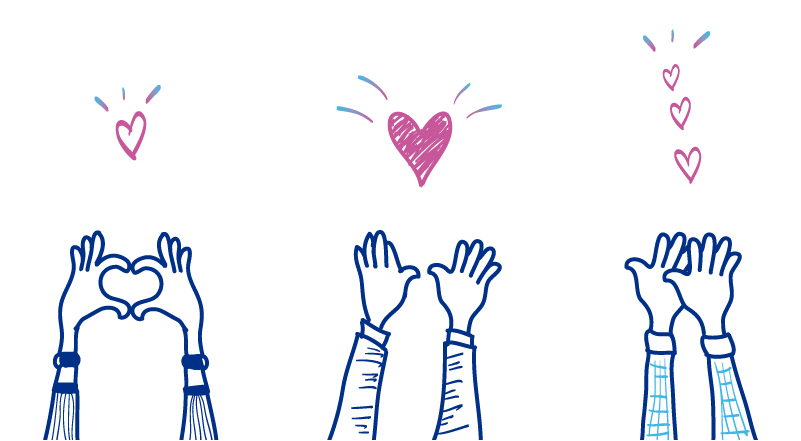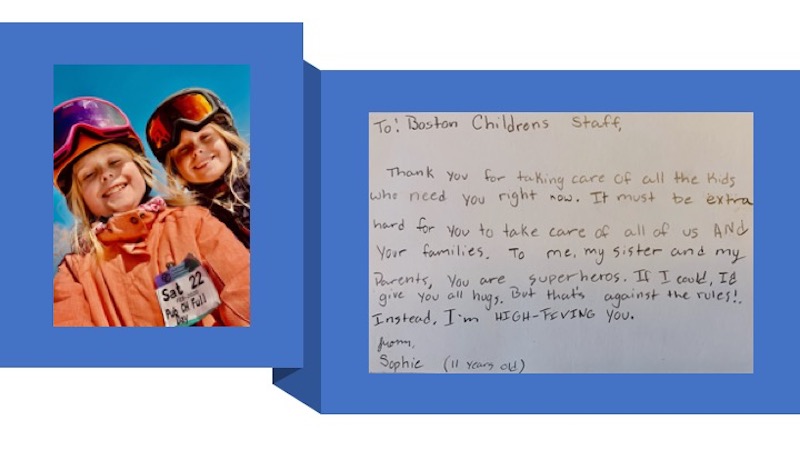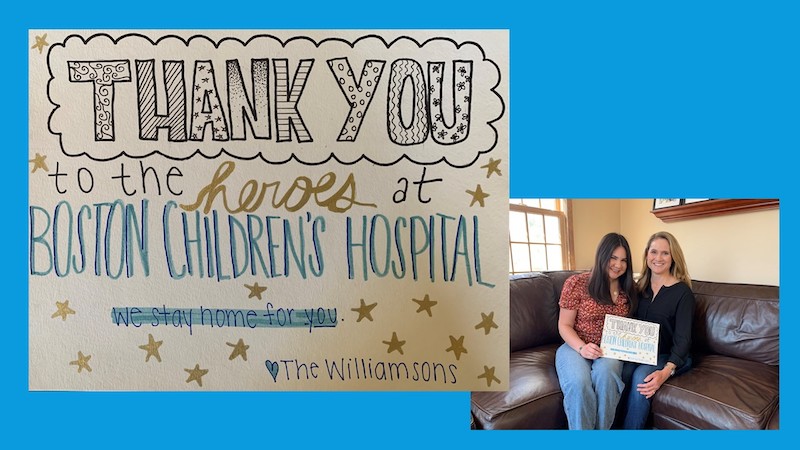Send us a smile: How families can help support Boston Children’s

As the world continues to cope with the COVID-19 pandemic, many families are asking what they can do to support our hospital staff. While Boston Children’s is accepting donations, as well as sealed, unused N95 masks and other personal protective equipment, one of the simplest and most heartfelt things families can do is to send a message of support, says Katie Litterer, family partnerships coordinator and mom of two Boston Children’s patients.
Share your thanks
A fun and easy way to cheer on your health care team is by using our Wyng platform. You and your kids can send a general message of encouragement to our frontline workers, or craft a personal greeting to a favorite Boston Children’s staff member.
Litterer’s twin daughters, Sophie and Maddie, chose to send a photo and a handwritten note…

…as did the Williamson family.

Other kids, like Jack Baker…
…and twins Stella and Thomas Downey, have put their parents’ cell phones to work, sending brief videos to show their support.
If you’d like to join these families in cheering on our Boston Children’s team, you can do so here. Have fun and get creative — you’re sure to brighten someone’s day.
Get more answers about Boston Children’s response to. COVID-19.
Related Posts :
-

New insight into the effects of PPIs in children
Proton-pump inhibitors (PPIs) are frequently prescribed to suppress stomach acid in patients with gastroesophageal reflux disease (GERD). Prescribing rates of ...
-

Creating the next generation of mRNA vaccines
During the COVID-19 pandemic, mRNA vaccines came to the rescue, developed in record time and saving lives worldwide. Researchers in ...
-

Reversing the trend: Easing the mental health boarding crisis in emergency rooms
Anxiety, depression, and suicide attempts have been rising over the past decade, especially among teens, often landing them in emergency ...
-

Brain wiring predicted adolescents’ emotional health during COVID
The COVID-19 pandemic was emotionally devastating for many adolescents, disrupting their schooling and social/emotional development. Drawing on national data, ...





